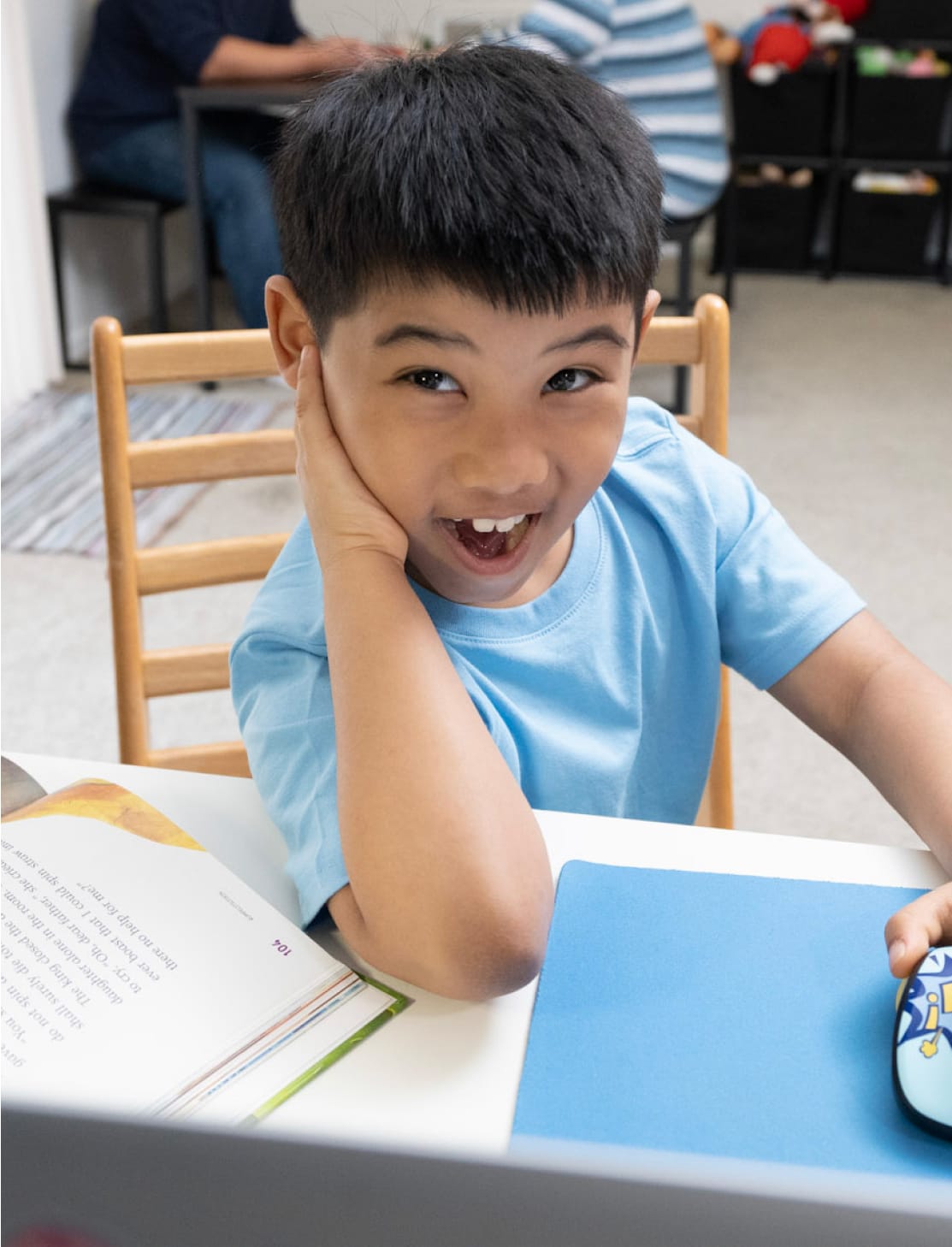The Importance of Kindergarten in Building a Strong Academic Foundation
Wiki Article
Variables to Consider in Choosing Independent School: Understanding What Each Institution Has to Deal for Your Youngster's Growth
Selecting an independent school for a kid involves careful consideration of numerous variables. Moms and dads need to examine the academic curriculum and teaching philosophies of numerous establishments. They must likewise explore after-school activities that can improve their kid's experience. Additionally, understanding the school's society and worths is essential for alignment with family members beliefs. As financial effects play a significant role, it is crucial to evaluate tuition expenses versus offered scholarships. Exactly how do these components shape a youngster's growth course?Academic Curriculum and Mentor Viewpoint
When picking a private school, recognizing the academic educational program and mentor approach is vital, as these aspects significantly influence a youngster's instructional experience. Parents ought to examine the school's technique to teaching and the topics provided, as this can vary substantially among institutions. Some colleges may take on a conventional educational program concentrated on core subjects, while others could highlight project-based discovering or interdisciplinary studies.In addition, the mentor viewpoint can form classroom characteristics and student interaction. Colleges that prioritize a student-centered method usually foster vital reasoning and cooperation, while those with a more structured setting might focus on self-control and fundamental abilities.
Extracurricular Activities and Enrichment Programs

Importance of Diverse Activities
While scholastic excellence is frequently focused on in personal schools, the importance of varied activities, consisting of extracurricular tasks and enrichment programs, can not be overstated. These tasks play an important function in a child's all natural advancement, offering chances for imagination, critical thinking, and synergy. Involving in numerous quests enables students to explore their interests, discover new enthusiasms, and establish necessary life abilities, such as time administration and self-discipline. In addition, varied tasks can promote a feeling of belonging and area, boosting the overall college experience. By joining clubs, sports, and artistic ventures, students not just enrich their education and learning however additionally produce memorable experiences that add to their personal growth. Diverse tasks are essential to cultivating all-around people.Influence On Social Abilities
How do after-school activities and enrichment programs influence a youngster's social abilities? These programs offer vital possibilities for youngsters to interact with peers outside of the conventional classroom setting. Taking part in sporting activities, arts, or clubs cultivates conflict, synergy, and communication resolution. Youngsters discover to browse varied social environments, boosting their capability to develop and develop relationships empathy. Furthermore, participating in different tasks encourages self-esteem, as youngsters tackle brand-new obstacles and responsibilities. As they collaborate on projects or contend in teams, they additionally obtain valuable experience in leadership and teamwork. Eventually, an abundant variety of extracurricular offerings adds substantially to a youngster's social development, preparing them for future interpersonal interactions in both academic and personal contexts.School Culture and Worths
Understanding the college culture and values is necessary for moms and dads evaluating private education and learning choices, as these components greatly influence a youngster's total experience. Each organization symbolizes distinct viewpoints, customs, and social standards that shape trainees' every day lives. An institution that emphasizes inclusivity may foster a supportive environment, motivating kids to develop empathy and respect for diverse backgrounds. On the other hand, organizations that prioritize scholastic quality might create an affordable atmosphere, inspiring pupils to intend for high accomplishment.Additionally, the positioning of a college's values with a household's ideas can enhance a kid's feeling of belonging, reinforcing positive actions and attitudes. Moms and dads need to examine the institution's goal statement, review its disciplinary plans, and observe pupil communications to gauge the fundamental culture. Inevitably, a college's culture and values significantly impact not only scholastic success yet additionally personal growth, gearing up kids with crucial life skills for their future.
Class Size and Student-Teacher Ratio
Class size and student-teacher ratio play an important function in the instructional experience supplied by independent schools. Smaller classes often bring about boosted private focus, fostering much better student interaction and understanding. Research shows that these elements can significantly influence discovering results, making them essential considerations for moms and dads.Advantages of Smaller Sized Classes
Smaller class sizes significantly enhance the academic experience by cultivating much more individualized interest from teachers. In these environments, instructors can customize their direction to meet specific pupil requirements, enabling a deeper understanding of the product. With less trainees, teachers can extra conveniently determine those who might be having a hard time and offer immediate assistance. This close interaction can cultivate more powerful connections between pupils and instructors, creating a supportive environment for discovering. Furthermore, smaller sized courses commonly advertise greater participation, as pupils might really feel a lot more comfy voicing their concerns and thoughts. see here now This dynamic motivates collaborative understanding and improves overall classroom involvement. Ultimately, the advantages of smaller courses add extremely to a well-rounded academic experience that prioritizes pupil advancement and growth.Influence on Knowing Outcomes
The benefits of smaller sized classes extend past customized focus, greatly influencing finding out end results. Research study regularly reveals that a reduced student-teacher ratio cultivates improved involvement, allowing teachers to customize guideline to specific requirements. This setting urges active participation, essential reasoning, and deeper understanding of the material. In smaller setups, educators can extra successfully determine and deal with learning voids, causing improved scholastic performance. Grade School. Furthermore, pupils often really feel extra comfortable expressing their ideas and asking questions, which can better enrich the learning experience. Conversely, bigger course dimensions might restrict communication and feedback, potentially hindering pupil development. Consequently, when evaluating independent schools, families need to think about class size and student-teacher proportions as significant aspects impacting their youngster's educational successArea Engagement and Adult Participation
Just how can neighborhood involvement and adult participation improve the academic experience in private schools? These components play a crucial duty in enhancing the discovering environment. When moms and dads actively take part in institution activities, they cultivate a feeling of belonging and support among pupils. This involvement can take various kinds, such as volunteering for occasions, going to conferences, or signing up with committees, which not just strengthens the college neighborhood however also boosts communication in between households and educators.Neighborhood engagement prolongs this assistance by linking the institution with local companies, services, and social establishments (Grade School). Such partnerships give students with one-of-a-kind knowing possibilities, consisting of workshops and internships, which add to their total growth. In addition, schools that prioritize these links typically create an even more inclusive ambience, allowing diverse viewpoints to be shared. Ultimately, community engagement and parental involvement serve to produce a joint and encouraging atmosphere that contributes favorably to trainees' academic and social success
Check Out Your URL
Financial Considerations and Scholarships
Navigating the monetary landscape of exclusive institutions can be a complex process for families. Tuition costs differ substantially, frequently affected by aspects such as area, facilities, and the college's credibility. Households must evaluate their economic scenario, thinking about not only tuition but additionally added expenditures like attires, fees, and extracurricular activities.Several independent schools use scholarship programs focused on bring in varied student populaces - Kindergarten. These scholarships can make and alleviate monetary burdens quality education and learning available to family members with differing income levels. It is important for parents to inquire regarding the accessibility of need-based and merit-based scholarships and recognize the application procedures included
In addition, some schools offer flexible layaway plan that can reduce prompt monetary stress. By evaluating all economic aspects and discovering scholarship possibilities, family members can make enlightened decisions that align with their educational goals and budgetary restrictions.
Regularly Asked Inquiries
Exactly How Do Schools Support Students With Learning Disabilities?
Schools support trainees with discovering impairments via individualized education plans, specialized mentor techniques, and additional resources. They frequently supply customized treatments, access to support personnel, and inclusive atmospheres to foster emotional and academic growth.What Is the College's Approach to Self-control and Actions Management?
The institution's method to technique and habits monitoring stresses positive support, clear assumptions, and corrective practices. Staff proactively engage pupils in conversations concerning behavior, promoting a supportive atmosphere that urges personal responsibility and responsibility.Exactly How Do Institutions Manage Student Transitions, Such as Moving to Greater Qualities?
Colleges normally give structured support during student adjustments, including orientation programs, click to investigate mentorship opportunities, and customized academic preparation. These steps intend to reduce anxiety, promote change, and assurance trainees are gotten ready for the challenges of greater qualities.What Are the Institution's Plans on Technology Usage in the Classroom?

Just How Do Institutions Evaluate Student Progress and Provide Feedback to Moms And Dads?
Schools analyze pupil progress with normal evaluations, including tests, tasks, and class engagement. Comments is offered to moms and dads using report cards, parent-teacher conferences, and on-line sites, making sure continuous interaction about each kid's academic advancement.
Report this wiki page